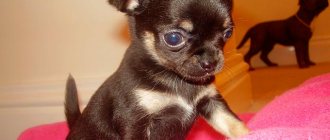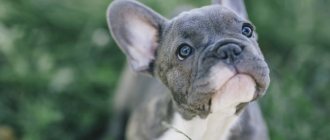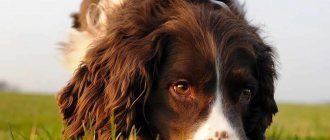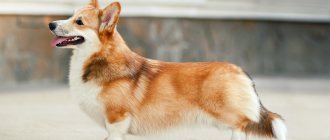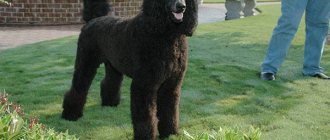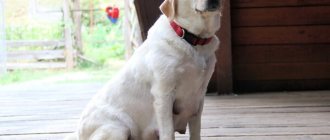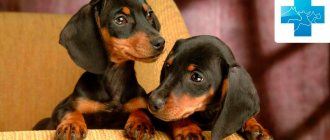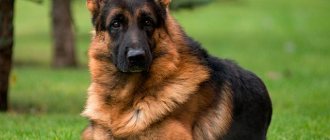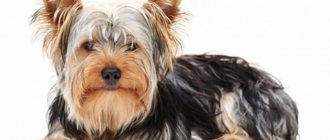In the photo there is a cat Pulcheria from the Yotunhem cattery (www.maine-coon.me)
There is an opinion that the life expectancy of Maine Coons is less than that of ordinary cats without a pedigree. Supporters of this point of view argue that maintaining the purity of the breed has a downside - the genotype is not updated, hereditary diseases are transmitted to an increasing number of animals, and as a result, the health status of a representative of a particular breed leaves much to be desired. The question of how long Maine Coons live is of concern to every fan of the breed who is thinking about purchasing a kitten. Most often, concerns about the life expectancy of Maine Coons arise among amateurs who visit breed forums on the Internet. On these pages, breeders share their experiences, talk about pet health problems, accidents, and unsuccessful births. A person just taking a closer look at the breed may get the impression that many Maine Coons are susceptible to diseases from childhood and, therefore, do not live long.
Lifespan
Among domestic cat lovers, there is an opinion that purebred pets live much less than their “simple” counterparts. This statement is wrong. With proper care, the life expectancy of a Maine Coon is 5-7 years longer than that of a non-pedigreed cat. However, there is an interesting nuance - cats and female cats of a given breed are given different amounts of time.
Cats
From the point of view of procreation, the life of any female individual is more important than the male one. After all, females are entrusted with an important mission - they must bear, give birth and raise offspring. It takes a lot of effort, energy and time to perform the reproductive function. Therefore, Maine Coon cats are more resilient and have strong immunity compared to males.
The lifespan of a pet is 16-20 years. This is decent enough for a pet. Cats cannot boast of such longevity.
Kotov
Maine Coon cats live on average 13-17 years. This is somewhat smaller than females. However, with proper care and regular monitoring by a veterinarian, a cat can live 4-5 years longer.
History knows a cat named Velvet from the USA, who lived to be 27 years old. The owner of the centenarian said in an interview that he walked a lot and communicated with the pet, and also allowed him to act in accordance with his natural instincts.
Spayed and neutered individuals
Spayed and neutered cats live 5-6 years longer than pets who remain sexually active. Experienced breeders explain this by the lack of stress associated with issues of reproduction and caring for offspring.
At the same time, owners of castrated and sterilized animals need to remember that they are prone to gaining excess weight and developing malignant neoplasms. Therefore, the health of such pets needs to be constantly monitored.
And finally
There can be no definitive answer to the question of how many years your Maine Coon will live and whether he will always be healthy. On average, Maines live 12-15 years, but in some individual cases the age limit can increase to eighteen years or more. Of course, the Manx breed has hereditary risk factors (like almost all animals), but this risk will be significantly lower if you purchase a kitten from trusted breeders. And with proper maintenance and your tireless care, your pet will delight you for many years to come.
Many examples of long-lived coons can be seen on the forum of owners of these wonderful animals:
Common causes of premature death
The following conditions contribute to the premature death of Maine Coon cats:
- Falling from height. Representatives of this breed, unlike other cats, are unstable on narrow surfaces and also have difficulty landing. Maine Coons often die from fractures after bad falls.
- Eating inedible objects. Maine Coons love to taste everything they come across. Sometimes this leads to death from asphyxia or poisoning. For example, when eating bags of household chemicals or small objects that get stuck in the throat.
- Inadequate nutrition. Not all owners feed their pets with high-quality food, not to mention specially prepared natural food. Many give cats their own food, and also “pamper” them with sweets, baked goods, fast food and other forbidden dishes. This diet can halve the life expectancy of Maine Coons.
In addition to the listed external factors that can “kill” a pet, there are also internal ones. Cats of this breed are characterized by diseases such as hip dysplasia, renal failure, and hypertrophic cardiomyopathy. In the absence of timely treatment, these diseases lead to the premature death of the animal.
Tray training
If a kitten is purchased from a breeder, it means that it is already 2-3 months old, and therefore, it knows what a litter box is.
In this case, the baby only needs to be shown a new place where the kitten should go to the toilet. If, for example, a kitten lives in a large house, it is better to have several such litter trays. Some Maine Coons have a characteristic habit of going to one litter box when needed, and to another when needed. If litter box training occurs on your own, you need to pay attention to the animal’s behavior. You can recognize that a kitten needs a toilet by its behavior:
- the animal begins to worry;
- looks for a secluded place;
- squeaks or meows.
If this happens, you most likely need to plant it in a tray. The owner must carefully move his pet. If the kitten does not understand what is required of him, the person should dig a little into the filler with his hand, thereby letting the cat understand what needs to be done here. If you were unable to do this in time and the kitten made a puddle, you need to wipe it off with napkins and put them in the tray. By the smell, the kitten will understand where he needs to go.
Tray training.
How to extend lifespan
Every caring Maine Coon owner wonders what to do to make the cat live as long as possible. To do this, it is necessary to provide the animal with proper care. There are several basic factors that a breeder must take care of.
Nutrition
An inadequate diet and consumption of harmful foods leads to the progression of existing diseases in Maine Coons and the emergence of new ones. Veterinarians recommend choosing the following products for feeding large breed cats:
- lean meat: turkey, beef, chicken, rabbit;
- sea fish;
- fermented milk products: kefir, yogurt, natural yogurt, sour cream;
- quail and chicken eggs - no more than once every 6-7 days;
- fresh, boiled, baked vegetables: broccoli, pumpkin, carrots, cauliflower, zucchini;
- fresh chopped fruits - apples, pears, black currants;
- cereals
You should not overfeed your pet and allow it to become obese. Maine Coons often suffer from hip dysplasia, and excess weight can significantly aggravate the disease.
From industrial feeds, it is recommended to use holistic feeds, as well as premium and super-premium mixtures.
For a complete list of what you can feed your Maine Coon, see the article: “Maine Coon Diet.”
Conditions and care
As practice shows, Maine Coons kept in private homes live longer. The life expectancy of apartment dwellers is somewhat shorter - there the cat is deprived of the opportunity to exercise, breathe fresh air, or “pinch” fresh grass rich in vitamins.
Proper care also affects the lifespan of Maine Coons. The cat should always be kept clean - remove dirt from the nose, wash the eyes and ears, trim the claws. Particular attention must be paid to wool hygiene - you can bathe your pet once every 2-3 weeks, but you need to brush your Maine Coon every day.
It is also necessary to periodically inspect the animal's fur for fleas. To avoid such troubles, it is better to immediately buy a special collar for the cat.
Physical activity
The Maine Coon is a born hunter. Nature inherent in it is the desire to track and catch prey, constant movement. Do not suppress the natural instincts of your pet. After all, a measured, recumbent lifestyle can lead to obesity in a cat.
To maintain physical activity, you need to constantly play with your Maine Coon and walk it at least 2 hours a day. Experienced breeders recommend owners of large cats buy special play complexes for their pets, including houses, scratching posts, multi-level platforms, and vertical posts. Daily exercise will improve your cat's health.
Maine Coons are highly trainable. Therefore, you can choose a simple set of exercises that will not let your pet get bored. Cats of this breed easily follow the commands “sit”, “give paw”, and bring an abandoned toy to the owner.
Sterilization or castration
Castrated and sterilized animals live an order of magnitude longer than pets that have not undergone the corresponding operations. Therefore, if the Maine Coon owner does not plan to breed professionally, veterinarians recommend castration or sterilization. These medical procedures are absolutely harmless to animals.
As a result, the pet will receive inner peace and will not experience seasonal stress. It will also save the energy needed to find a partner. Neutered cats are healthier due to the absence of pregnancies, childbirths, and the absence of nursing kittens.
Spayed and neutered Maine Coons are prone to obesity. Therefore, after the operation, it is recommended to transfer them to specialized industrial feed.
Treatment and prevention
Maine Coons have some health characteristics. This breed of cats is characterized by frequent diseases of the cardiovascular, excretory systems, and musculoskeletal system. Therefore, owners of furry pets need to remember the basic preventive measures aimed at maintaining health:
- The cat should be constantly shown to the veterinarian, at least once every six months. It is also necessary to visit a specialist if your pet behaves strangely: refuses to eat, sleeps a lot, or shows restlessness.
- Starting from 2.5 months, the kitten must be vaccinated against rabies and other diseases (chlamydia, tracheitis, pylencopenia). 7-10 days before vaccination, the animal must be treated for worms, fleas and ticks.
- When feeding a cat natural food, it is recommended, together with a veterinarian, to select the appropriate vitamin and mineral complex (depending on age, gender, nutrition, conditions of detention).
- To maintain healthy teeth and oral cavity, you should introduce solid food into your pet’s diet and buy special sticks for cleaning teeth. Your cat's mouth should be examined by a veterinarian once every six months.
Interesting: “How to choose a Maine Coon kitten.”
How long Maine Coons live is a controversial question. Much depends on the owners. To prolong the life of a pet, you will need to provide it with good care. And the main thing is to show the cat your love and affection. Sometimes this is a decisive factor in increasing the life expectancy of the Maine Coon.
Video: interesting facts about the Maine Coon.
Care Tips
Experienced breeders advise creating the following conditions for keeping a Maine Coon:
- Prepare a place for food. Place a large, stable container for water separately; coons love to wet their paws. Two separate bowls for dry food and wet food - for ready-made food or homemade food.
- To care for the Maine Coon, two litter trays with granular filler are installed, which are selected individually to suit the pet.
- You will need a secluded corner with a house where the coon will rest and sleep.
- They install several scratching posts so that those who like to sharpen their claws will be less likely to strip furniture and wallpaper.
Grooming
Maines are famous not only for the large size of their long, powerful body, but also for their coat. This breed has a luxurious coat with semi-long pile, a large woolen collar around the neck and everything ends in a magnificent fluffy tail that can cover the entire body. Caring for Maine Coons to keep their coat shiny and silky requires care and careful grooming.
For proper care, you will need to purchase a set of accessories, which includes the following set of tools:
- to penetrate deeper into the fur, use a comb with teeth of different lengths;
- a comb with wide teeth, good at breaking up hair that has bunched up in a ball;
- for combing out small “kaltushki”, removing dirt, a comb with frequent teeth;
- to remove dead, fallen hairs, use a fine-toothed comb;
- a small slicker brush with stiff bristles of natural origin;
- sharp scissors are useful for cutting out tangled pegs;
- It is useful to purchase a Furmitator, which simplifies combing wool.
When choosing tools, do not forget to pay attention that they are not made of metal and do not produce static electricity with sparks. At the same time, they give preference to combs with non-sharp, rounded ends, so as not to injure the pet’s skin.
It is better to start caring for Maine Coon fur with a thorough examination of the entire coat, especially in places where it often falls into “kaltushi”. They inspect the sides, under the hips and the collar one by one, spreading the fur with a comb, looking for tangled pieces, trying to break them or carefully cutting them out with sharp scissors.
When purchasing a Maine Coon kitten for a home, the owner must understand that it is not enough to just take care of the pet, this large, beautiful animal, similar to a wild lynx, is actually a good-natured animal, needs communication, craves attention.
Establishing the maine's trust will allow the cat to endure all unpleasant procedures and be devoted to the owner all his life.
Amazing Maine Coon
The Maine Coon Cat is considered the pride of North America, and for good reason. These cats are distinguished not only by their large size, long silky hair and tufted ears, but also by their intellectual abilities. Many researchers who study them claim that representatives of the breed are capable of performing deliberate and logical actions, characteristic of some dogs, for example, Labradors.
Maine Coons are ideal pets in every way. They:
- educated and peaceful;
- treat children well;
- amenable to training;
- clean;
- adapt to the owner's habits.
The only controversial point in buying Maine Coons may be the need for care. However, if you understand the issue well, you will notice that caring for these cats is not so difficult. How to care for a Maine Coon at home?
Kidney and urinary tract diseases
- Inflammatory diseases of the urinary ducts. They develop when infections enter from the outside or during the movement of kidney stones. Symptoms are similar to urolithiasis.
- Nephritis. It is characterized by rare urination, and the animal experiences discomfort and pain. Swelling and restless behavior appear. Often nephritis becomes a complication after a cold. In such a situation, the Maine Coon is kept warm and ensured peace. It is advisable to adjust the diet by contacting a veterinarian. If necessary, the specialist will prescribe additional treatment.
Maine Coon exterior
One way or another, the animals are distinguished by their rare beauty.
In order to describe in detail the representatives of the Maine Coon genus, it is necessary to pay attention to their characteristic features
• the size of the animals reaches approximately one hundred and thirty centimeters, their height is up to half a meter, and they rapidly increase up to four years of age; • a well-developed adult Maine Coon cat weighs about ten kilograms, females - about six kilograms;
- Slim physique. The strong and flexible body is elongated, the paws are large;
- the bases of the hind limbs are slightly enlarged, thanks to which the cat can stand on its hind legs without leaning on anything;
- the tail is long, fluffy and luxurious;
• the appearance of Maine Coons is very attractive. Cats have the following features: a large, elongated head, long, mobile ears, large, spaced eyes, on the ears there is a thick edge, crowned with tassels on top.
The average lifespan of animals is up to twenty years.
It is also important to dwell on how a Maine Coon cat differs from a male cat. First of all, of course, the size
The cat is much larger and has more developed muscles.
But the representatives of the fair sex of the American breed are characterized by extraordinary affection, tenderness, and devotion to their owners and other animals living in the house. They are capable of true, sometimes selfless love.
Breed price
The breed is rare and therefore expensive.
The average price of a Maine Coon kitten is $1,000. The price depends on the color and pedigree. You cannot buy this breed on the market. If the owner does not attend exhibitions and does not evaluate cats from an expert, then the demand for them falls. We have a pedigree up to the sixth generation, the titles of the parents are known, we have a veterinary passport with vaccinations and an expert opinion. A kitten with body proportions that are far from ideal costs 1000-2000 hryvnia less.
These beautiful, charismatic cats don't come cheap. The average price is from 400 to 1000 US dollars.
Maine Coon prices vary significantly depending on where the breeder is located and what the purpose of breeding them is. When purchasing a kitten, make sure that the parent, who is a full Maine Coon, has undergone full health testing. Cross breeds are less likely to suffer from inherited diseases.
koshkin.site
